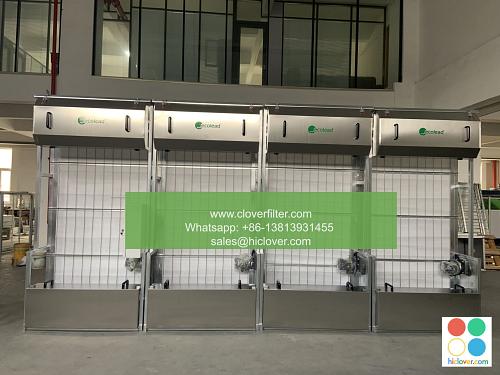Air Filter API Standards: Ensuring Interoperability and Compatibility

The air filter industry has experienced significant growth in recent years, driven by increasing awareness of indoor air quality and the need for clean air solutions. As a result, the development of Air Filter APIs has become a crucial aspect of this industry, enabling seamless integration of air filter systems with various applications and devices. However, with the proliferation of different API protocols and data formats, ensuring interoperability and compatibility has become a major challenge. This is where Air Filter API standards come into play, providing a common framework for development and facilitating the creation of smart air quality monitoring systems.
Introduction to Air Filter API Standards
Air Filter API standards refer to a set of guidelines and specifications that define how air filter systems should communicate with other devices and applications. These standards ensure that different systems can exchange data and function together seamlessly, facilitating the development of integrated air quality management systems. By adopting standardized API protocols, such as RESTful APIs or MQTT protocols, developers can create interoperable air filter systems that can be easily integrated with various IoT devices and cloud-based platforms.
Benefits of Air Filter API Standards
The implementation of Air Filter API standards offers numerous benefits, including:
* Improved interoperability: Standardized APIs enable seamless communication between different air filter systems and devices, facilitating the creation of integrated air quality monitoring networks.
* Increased compatibility: By following standardized protocols, developers can ensure that their air filter systems are compatible with a wide range of devices and applications, including smart home systems and industrial automation systems.
* Enhanced data exchange: Standardized APIs facilitate the exchange of air quality data between different systems, enabling the development of advanced air quality analytics and predictive maintenance capabilities.
* Reduced development costs: By leveraging standardized APIs, developers can reduce the time and cost associated with developing custom API integrations and data formats.
Application Areas of Air Filter API Standards
The application of Air Filter API standards extends across various industries and domains, including:
* Smart Homes: Integrated air filter systems can be controlled and monitored remotely using smart home devices and mobile apps.
* Industrial Automation: Standardized APIs enable the integration of air filter systems with industrial control systems and SCADA systems, facilitating real-time monitoring and predictive maintenance.
* Commercial Buildings: Air Filter API standards facilitate the development of integrated building management systems that can monitor and control air quality, energy consumption, and occupancy.
* Environmental Monitoring: Standardized APIs enable the creation of air quality monitoring networks that can track and analyze air pollution levels in real-time, facilitating data-driven decision making and environmental policy development.
Future Directions and Challenges
As the air filter industry continues to evolve, the development of Air Filter API standards will play a critical role in shaping the future of air quality management. However, several challenges need to be addressed, including:
* Standardization of data formats: The lack of standardized data formats can hinder the exchange of air quality data between different systems.
* Security and authentication: The integration of air filter systems with IoT devices and cloud-based platforms raises concerns about data security and authentication.
* Interoperability with emerging technologies: The development of emerging technologies, such as Artificial Intelligence and Machine Learning, will require the creation of new Air Filter API standards that can facilitate seamless integration with these technologies.
In conclusion, Air Filter API standards are essential for ensuring interoperability and compatibility in the air filter industry. By adopting standardized API protocols and data formats, developers can create interoperable air filter systems that can be easily integrated with various applications and devices. As the industry continues to evolve, the development of new Air Filter API standards will play a critical role in shaping the future of air quality management and facilitating the creation of smart air quality monitoring systems. It seems like you’re ready to start a conversation or ask a question, but you haven’t provided a specific topic or prompt yet. Could you please provide more details or clarify what you’re interested in discussing? I’m here to help with any questions or topics you’d like to explore!

